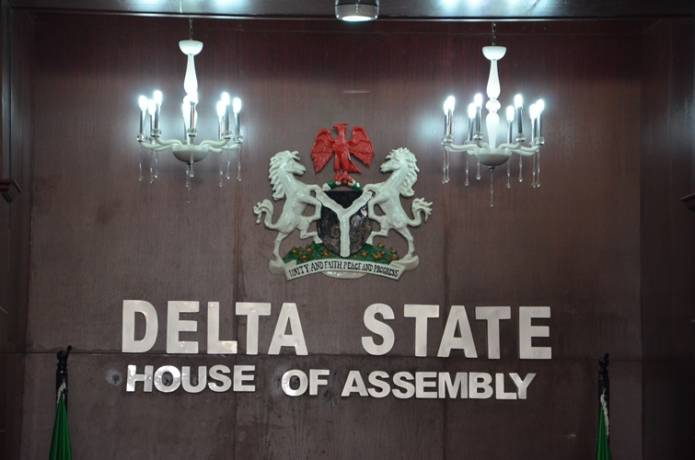Money Laundering: Court refuses Senator Nwaoboshi’s application to vacate order

Peter Fowoyo
An application brought by a People’s Democratic Party (PDP) chieftain, Mr Peter Nwaoboshi, seeking to vacate an order for the temporary forfeiture of his property was on Wednesday refused by Justice Abdulazeez Anka of a Federal High Court, Ikoyi, Lagos.
Nwaoboshi was alleged by the Economic and Financial Crimes Commission (EFCC) to have laundered part of N1.5billion, which he fraudulently obtained from Delta State, through a company known as Suiming Nig. Ltd.
The agency is asking the court not to discharge its interim order forfeiting the 12-storey building belonging to the Senator, which he allegedly bought with the money.
Nwaoboshi’s lawyer, Chief Anthony Idigbe (SAN), in his argument to discharge the forfeiture order said that the commission concealed material facts in obtaining the order, and did not comply with the EFCC Act.
Besides, he said that the temporary forfeiture order violated the applicant’s right to own property as guaranteed by Section 43 of the 1999 Constitution.
“It becomes dangerous for citizens, if the state can seize citizens’ property without a criminal proceeding against them,” he said.
EFCC’s lawyer Mr Ekene Iheanacho had argued that the right to own property was not absolute, and that a property can be temporarily forfeited during investigation even if no charge had been filed.
“Arrest is not a condition precedent to forfeiture; the law allows that even though the person has not been arrested, the property can still be attached.”
“We urge the court to reject this application and not to discharge the earlier order made by the court,” Iheanacho had prayed.
Justice Anka, however, held that: “I have listened to the submissions of counsel and taken into account the authorities cited.
“The action was filled by the EFCC during the pendency of the suit and so, the first question is whether the filling of the suit can be described as an abuse of court process.
“In the current action, the EFCC has put their intention to manifestation and I therefore, see no abuse on the process,” he said.
Anka held that the Court cannot interfere with the investigation process of the EFCC or make pronouncements which will hinder, or be perceived as hindering the performance of their statutory duties.
He held that the Court will avoid making pronouncements which will touch on the root of the main issue or on the validity of any criminal charge.
He said: “such argument is accordingly discountenanced.
“Investigation activities will not be stopped by the court against the Agency while it is carrying out its statutory duties; this will amount to pre-empting the investigative powers of the Agency .
“Investigation activities cannot be stopped by the court,” he added.
On the whole, the court held that the application of the applicant fails and accordingly dismissed same.
“All parties have a right of appeal” Justice Anka added.
An EFCC operative, Mr Garuba Abubakar, averred that Nwaoboshi, got a contract through his company, Bilderberg Enterprises Ltd, to supply new construction equipment for the state Direct Labour Agency at N1.5billion.
He averred that the company allegedly imported and supplied used construction equipment rather than brand new ones inspite of receiving full payment.
EFCC said that Nwaoboshi, with the proceeds, bought the 12-floor building at 29 Marine Road, Apapa at the sum of N805million in the name of Golden Touch Construction Projects Ltd.
The commission said that the Senator had no “visible legitimate business venture to generate the amount spent in the purchase of the said property.
According to EFCC, Nwaoboshi has 20 bank accounts which he operates in Nigeria, while companies directly linked to him maintain another 20.
The commission said that the interim forfeiture order granted on April 21 was to preserve the property from being dissipated.
EFCC said that contrary to the Senator’s claim that he sold the property to Suiming Ltd, the company actually belongs to him.
It had therefore, argued that it is in the interest of justice to refuse the application.








